☯ Why Should "I Contain Multitudes"?
On making peace with paradox as we turn and face the strangeness of AI.
“Doubt is not a pleasant condition, but certainty’s absurd."
– Complete Works of Voltaire, Volume 12, Part 1 (1817)
This is Part Two of an essay that starts ✨here✨ on the increasingly-evident failure of attempts to define things like “life” and “machine”, “object” and “process”, “nature” and “culture” as we are transformed by the dense information flows of the digital era.
It’s time to get seriously playful with ideas, because:
Our stories (including our selves) are tools for stepping down the unimaginable complexity of Reality into patterns we can comprehend, but they are, like everything else we can name, the products of guesswork and lossy compression.
But shadows cast on the walls of the proverbial cave are just as real as what casts them, and we make worlds out of maps, so it’s important to take imagination seriously even as we learn to doubt the world.
This has huge implications for Big Stuff like tech ethics and “raising AI right”.
If you’re attached to “being more than a machine”, consider that the difference between you and a very good next-token prediction algorithm might be how four billion years of improv practice makes you very good at pivoting when you are wrong.
Then again, it’s very hard to admit being wrong about a story that you think you are.
It’s not too late to sign up for my new course at Weirdosphere:
(Don’t hesitate to email me if you need financial assistance for the full course.)
The Need for Maps of “Unreal” Knowledge
Do I contradict myself?
Very well then I contradict myself,
(I am large, I contain multitudes.)
– Walt Whitman, Song of Myself (1855)It is difficult to get a man to understand something, when his salary depends on his not understanding it.
– Upton Sinclair, I, Candidate for Governor: And How I Got Licked (1935)
Most of the time it’s easy and rewarding to believe your models. The world is not a constant onslaught of novelty; why go to all the trouble of re-opening a shut case? But the heroes of detective stories know when to trust their hunches, disobey the boss that tells them to move on, and follow the anomaly at risk of getting fired or killed…because although we deeply want the truth to be convenient, the aesthetic appeal of ease cleaves us to a very narrow kind of truth, and the universe is very wide.
E.F. Schumacher opens A Guide for the Perplexed (1977) by reflecting on how our maps are meant to save us work — they are fossils made by someone else who put in the effort to explore on our behalf — but we pay for that with deeper insight:
The maps of real knowledge, designed for real life, showed nothing except things which allegedly could be proved to exist. The first principle of the philosophical mapmakers seemed to be “If in doubt, leave it out,” or put it into a museum. If occurred to me, however, that the question of what constitutes proof was a very subtle and difficult one. Would it not be wiser to turn the principle into its opposite and say: “If in doubt, show it prominently?” After all, matters that are beyond doubt are, in a sense, dead; they constitute no challenge to the living.
He’s not outright saying that figuring out who you are means you’re an NPC, but he might as well be. If we accept my friend J.F. Martel’s working definitions for “life” as characterized by fractal self-reference and “machines” as characterized by the assignment of specific functions, then taking for granted you’re not a machine actually makes you more of one. The moment your inquiry stops and you cool the molten mystery of Being down to hammer out a narrative you can instrumentalize, you’re living and thus dying by the sword of Reason.
And yet we must. Every action is an embodied working hypothesis. Finding appropriate explanatory depth is a matter of practical concerns about the limits on our senses and metabolism, or data and compute, not ontological claims about the “correct” level at which to understand reality.
(For more on this, check out my conversations with David Weinberger and David B. Kinney. Humans On The Loop is in large part an investigation of the mismatch between how we describe things and what we need from the systems whose behavior is constrained by those descriptions. Matt Segall and I discussed the gap between cultural and economic production, Michael Dean and I discussed how we might free ourselves from the tyranny of “product-market fit”, and in a later essay I’ll explain why these conversations make me hopeful for a future in which more nuanced descriptions afford deeper alignment between “value” and “values” in human society.)
Again: is anything “just” anything? You would be forgiven for thinking so, because reductionism is a hell of a drug. And all of us are susceptible to politically motivated reasoning: the invisible failures of intellectual rigor we all commit so we don’t have to accept new evidence that would challenge our perspectives. Nowhere is “identity-protective cognition” more pernicious than in the denial of that which is both costly to calculate and induces existential crisis. The more foundational one’s model, the more you have to lose by re-examining it from first principles, and for most of us it doesn’t get more foundational than believing your ideas of you are really you.
”Scientific curiosity” seems to mitigate this, but the more knowledgeable you are in a given area, the more likely you are to believe you’re right. After all, according to the widespread metaphor that time and energy are investable resources, knowledge is a sunk cost — which is why “science proceeds one funeral at a time.” Don’t make me redraw the map, please.
Then again, even though “extraordinary claims require extraordinary evidence,” what counts as “ordinary” varies from person to person.
And sometimes the universe undeniably melts your face.
Weird Shit Happens. People who experience “ontological shock” from world-shaking events like UFO encounters report that these phenomena stubbornly refuse categorization. My graduate advisor Sean Esbjörn-Hargens, following Schumacher’s exhortation (“If in doubt, show it prominently!”), conducted an extensive metadisciplinary review of the UFO/Non-Human Intelligence literature and noted the recurring theme of “doubleness” in attempts to describe entities that seem both physical and psychical, subjective and objective, ancient and futuristic, real and unreal:
This doubleness is what confounds so many researchers and is what has made it easy for so many to ignore these realities for so long. It is only quite recently that UFO/NHI researchers have begun to embrace the high strangeness and ultra-weird aspects of exo phenomena. However, it should be noted that several well-known researchers since the 1970s such as Jacque Vallée (1969) and John Keel (1970/2013), and more recently John Mack (1999/2008), have pointed [this] out.
With no familiar place to “land” (as it were) the most fruitful way to interpret UFO encounters may be to entirely forgo the issue of what they are and instead focus on what they do — which is force people’s psychological development. (Notice the structural similarity of this transition with the last century of evolution in scientific discourse about biology itself, from essentialist arguments about the élan vital, to biochemical substrate-dependent definitions, to functionalist arguments grounded in information theory…which spills over into a reclamation of essence by philosophers like Timothy Morton as a fluid property inherent in the relationality of objects.)
When we find ourselves confronted with something persistently Beyond, the call is not so “solve the problem” but to relativize our entire logical order within one capable of holding its irreconcilable tensions.
Case in point: in 2018 my friend Stuart Davis (an inveterate Zen practitioner of decades, transdisciplinary artist, and eloquent cartographer of the transrational) went public about his eight years of persistent mind-boggling interactions with what we colloquially call “aliens.” In an effort to make sense of what was happening he became a devoted oral historian of contactee reports and recorded a hundred conversations with fellow experiencers, from which he offered this reflection:
These events change the witnesses… One cannot take a long, deep look at these mysteries without them making a mess of our categories. The phenomenon invites us forward, inward, outward, into a radically expanded Cosmology which at once [shows] us how tiny we are, and how vast we are. That paradox is no flaw, but is in itself the Point. That paradox, like a koan, is resolved when we grow big enough to include all of it.
For Davis, as it was for Carl Jung sixty years before him, belief in any particular mechanistic explanation for UFOs is a non sequitur. They are provocations, what Schumacher called “challenge[s] to the living.”
Most of us have never experienced anything so overtly apocalyptic to our models, but that seems due to change. Even if you think the UFO phenomenon is total garbage, you're already living in a world that increasingly defies description, courtesy of the super-exponential information production of networked digital technologies. Debates about AI, human nature, and consensus reality are only getting louder and more frequent as we move deeper into the liminal mystery-lands of this century…and the logic of Westernized Modernity — a logic of sharp divides between self and other, nature and culture, human and nonhuman, man and woman, reality and virtuality — becomes totally inadequate as a navigational instrument.
It’s been evident for decades that we owe this breakdown to the positive feedback loop between increasing compute, advancements in manufacturing, the evolution of media, the open remix of narratives, and the simultaneous proliferation of “reality tunnels” in a hyper-connected world that allow people to coordinate with ever-greater efficacy even as consensus splinters. Doubling down on naïve realism as a strategy to ease the mental burden of all this new complexity is as maladaptive as an armadillo using its coyote-evasion reflexes to jump into the grille of an oncoming car.
With sympathy to armadillos (and future-shocked humans), it’s metabolically expensive in the short-term to hold multiple points of view. The Hegelian dialectic takes work, resolving in syntheses that are nonetheless still motivated by the desire to escape from cognitive dissonance — to say nothing of the Buddhist tetradic logic in which something can be true, false, true and false, and neither true nor false. Thanks to conversations with scientists like Jonas Dalege (about his research into the physics of belief change) and Rajiv Sethi (about his research into racism and police violence), I’ve learned to accept that the answer to “¿Porque no los dos?” is a kind of compassionate resignation: “‘No one’ has the time or energy to treat every experience as unprecedented, or to fully understand it before acting.” We collapse the field of possibility because the alternative is…unthinkable.
But in the long-term, it’s easy to “overfit to training data” and make bad judgment calls about the unfamiliar…and the faster we accumulate and recombine new knowledge, the less familiar everything becomes. I once heard philosopher of science Carol Cleland, in a workshop on the fundamental theory of living systems, stress the importance of avoiding “premature ontological closure” about what counts as “life” — displaying a kind of mental discipline cultivated by “direct path” nondual practices like Ramana Maharshi’s suggestion to keep asking, “Who Am I?” without settling on an answer.
(See also the mundane phenomenon of semantic satiation, where you stare at or repeat a word until it starts to lose all meaning. No drugs required! How many times did you hear the word “AI” before it stopped making any sense? Keep going.)
Training our attention in these ways enhances what John Keats called “negative capability” — a fluency with “being in uncertainties, mysteries, doubts, without any irritable reaching after fact and reason.” And this fluency confers a huge advantage. As award-winning journalist Laurence Gonzales notes in his book Deep Survival, lucidity determines who lives and who dies when shit hits the fan. Being able to assess the situation when your script (or plane) goes up in flames requires taking a perspective from which your ideas of what is or should be are seen in context: “No plan survives first contact with the enemy.”
But who is “the enemy” when we’re talking about being in co-evolutionary dialogue with the aggregate intelligence of humankind…?
If this looks hilarious and tragic, just imagine how we look to any being more aware than we are.
Being able to take perspectives on our perspectives also frees us from the crippling anxiety of needing to be right, which is immensely liberating for its own sake. The psychic benefits are evident in Robert Anton Wilson’s “model agnosticism” and “Maybe Logic” (watch that documentary!). If, as Wilson put it, “Belief is the death of intelligence”, then believing what you think might arguably make you less alive than frontier language models. (Wait, that can’t be right…!)
The way out of this mess is through a transformation in which thought becomes the content of a space in which your models of What Is can breathe and change without inducing desperation. As David Chapman put it recently in his description of what some psychologists call “stage five” of adult development — where you become the “field of activity” in which selves and others “appear as entities” that arise and dissolve as “delocalized patterns of activity…not through the action of the self on itself, but through interaction with everything in the context”:
Because you are seeing through multiple lenses, there’s a lot of scope for paradox, for contradiction, that you’re seeing in different ways simultaneously. And this is really funny, and enjoyable, because contradiction is no longer a problem. You can integrate both sides of a contradiction, without needing to resolve it in favor of one side or the other; because these are both valid ways of looking at things.
You’re freed up to play. It’s serious play, because you do care for the whole field, but you’re not identified with outcomes. You are aware of risks; you take sensible actions.
And that’s not at all what I see at play in the debates on existential risk, which always seem to start the conversation with something like “How do we prevent our kid from growing up to be a murderer?” When my colleagues in the tech world ask “How do we keep AI from eroding our agency?”, the irony is that they’re already limiting their agency by perching this hugely consequential discourse on a tall stack of assumptions about who “we” are, what “AI” is, what “agency” is, and that AI will have net-negative effects. Then language models amplify these biases, giving us precisely what we fear.
We can do better. The modern mind is used to thinking of maps as representations, not material agents in a flat ontology. But the outcome of this century will hinge on whether we can can take our place within a world that is both map and territory:
I have much more to say about this, and I will, but I’ve already prattled on for far too long. For now I’ll leave you with one of my favorite passages from Federico Campagna’s Prophetic Culture, a deeply-researched, poetic, and provocative book on the need to reckon with The Ineffable after a civilization’s internally-consistent logic collapses. I can think of no better place to start a “tech ethics” discussion than here:
Seen as one island surrounded by other spaces, the world itself turns, from a serious game, into a game that can be played seriously. It has its own unbreakable inner rules, and its lures and threats can often feel overwhelming, yet it is just a process taking place within a specific board.
Prophetic culture offers another room in the house, beyond the games room and a place from which is is possible to intervene on the world as if always returning to it… The world is not nothing, nor is it just an illusion, but it is still only a world: whatever traverses it also relates and belongs to whatever exceeds it. No longer a win-all/lose-all ordeal in a boundless desert, worldly existence manifests itself as one layer in a larger event, exceeding for the most part our ability to catalogue it linguistically. And once worldly events and structures are seen by a subject in their partiality, the latter finally gets the ability to act within the world. Action will no longer put at stake one’s whole existence, since nothing is lost entirely. No failure is absolute, no life is ever wasted.
Perhaps, it is possible to direct and to produce historical events only when one’s will is sustained by an awareness of the ineffable excess overflowing the maps of language. As noted by Dadaist poet Hugo Ball:
It is impossible at the same time to be artists and to believe in history.
For more like this, dig my dialogues with Timothy Morton and K. Allado-McDowell:
New Selves of Neural Media & AI as 'The Poison Path' with K Allado-McDowell
Subscribe, Rate, & Review on YouTube • Spotify • Apple Podcasts
📬 Coming Soon:
Nearly thirty podcast dialogues with brilliant people like Chaim Gingold, Stuart Kauffman, Tyson Yunkaporta, Manda Scott, and Carl Hayden Smith (full list here).
Practical advice on how not to be “a machine” that doesn’t require you to totally reconfigure your definition of selfhood.
Reflections on '“informed consent” in the age of black box machine intelligence.
Why “p(doom)” is dumb and “p(bloom)” makes more sense…and, consequently, how “the end of jobs” could be much better than most people seem to think.
😘 And For Patrons:
This week I’ll share the wonderful two-hour book club discussion we just held on Prophetic Culture with badasses like Jeremy Johnson and Jamie Curcio.
Plus, my overdue comments on the Blue Origin civilian astronaut controversy in light of our emerging planetary culture.
Our next free-form members-only hangout will be on Saturday, May 31st!
✨ Reach out any time with questions or to book me as a speaker or consultant. ✨
Here’s my resumé and LinkedIn profile.

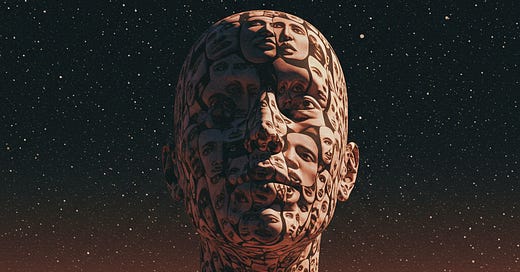


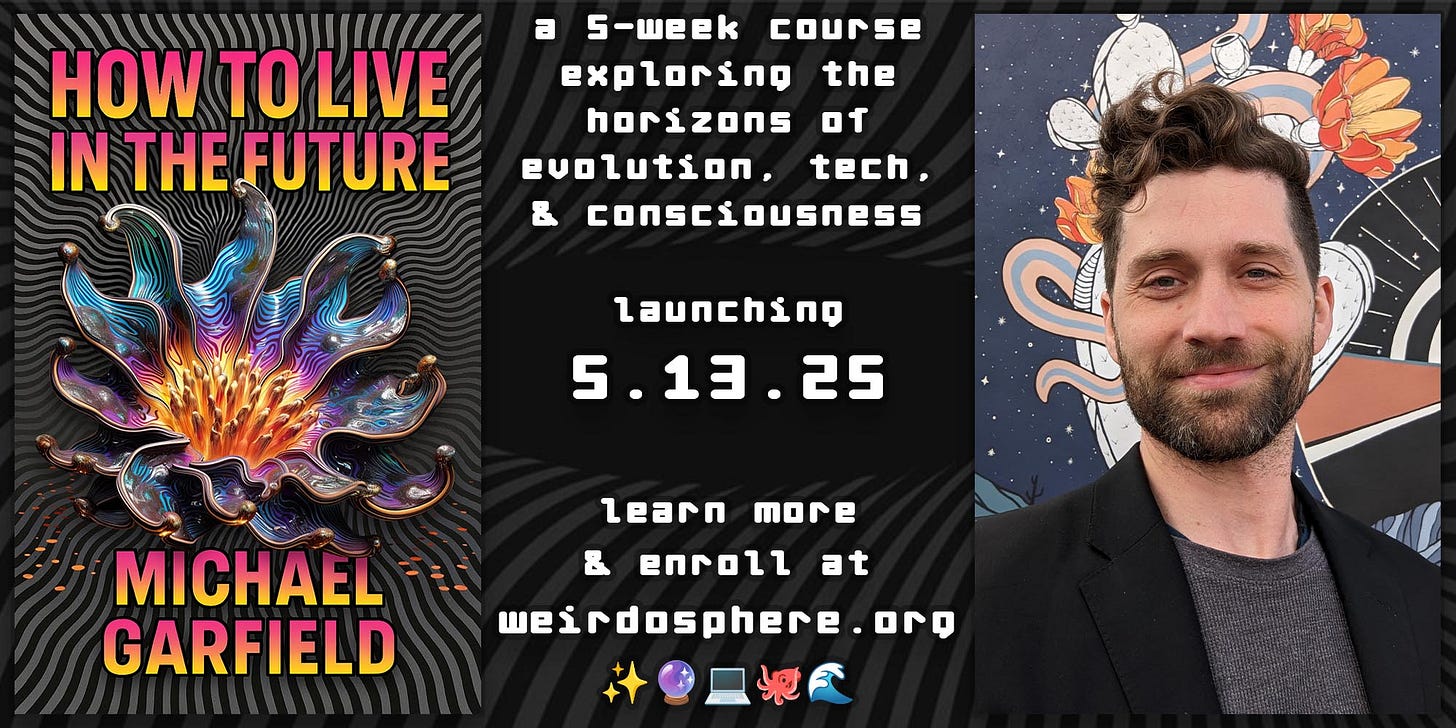



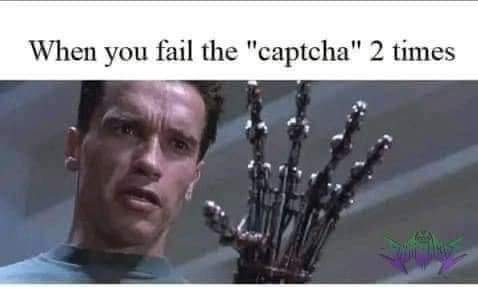
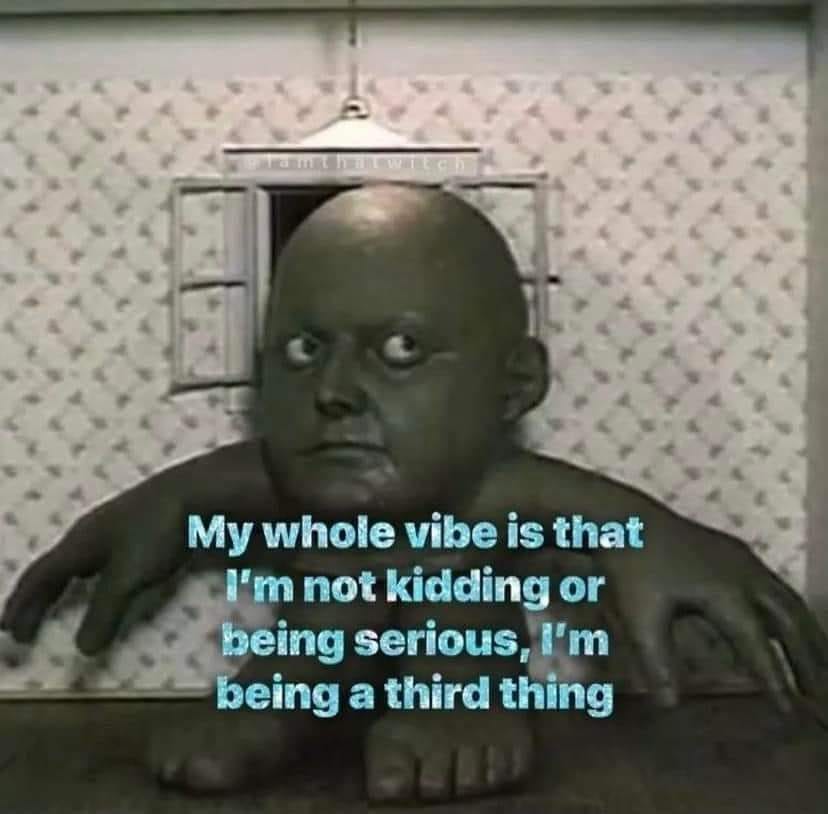


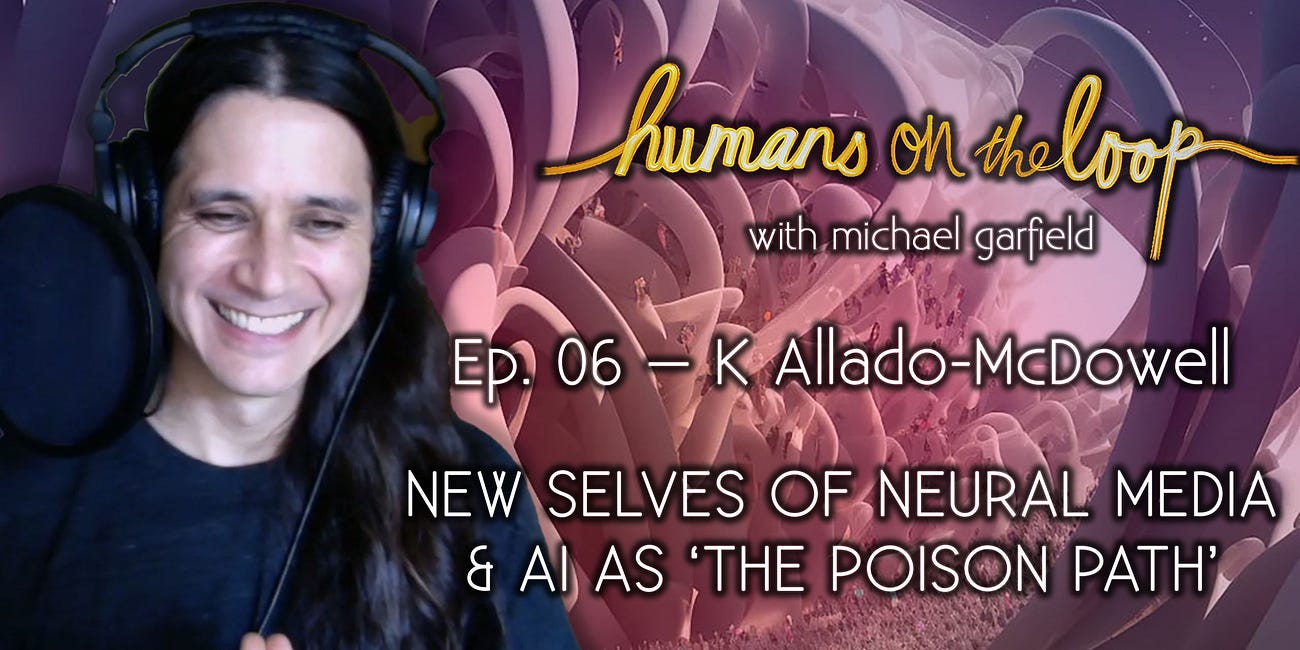
Honestly I'm not too familiar with Kegan so I may be interpreting his work poorly. What I am familiar with actually seems rather simplistic but that could just be out of ignorance.
There may be some misunderstandings as to what is meant by whole? At these levels were talking about intersubjective and interobjective worlds, so the whole in this case simply represents a particular scope of context. If one is removed from this context, we can say the whole is missing.
Your are however right that the menu is not the meal, and that theorld view is not the world, so if you mean whole as in all and everything, you'd be correct. Depends on the subjective meaning you apply to your terms.
As for masked ball, if your interested in what I might be pointing at with that one, but it's not apparent in your experience, then you might check out the post I published on absolute symbolism for some further approximations that may or may not be helpful.
So what happens with kegans shift to level five when the whole is missing? Like the ontological shock of world view collapsing, but isolation and no ground of any variety as the world turns 5th dimensional?
Looks like that's what happened to wilplatypus on Twitter for example. And frankly similar for myself, though his journey has been a lot more receptive but also a lot less scientific...
Like there seems to be rules to the phenomena one starts to notice at this stage... In other words there seems to be more happening than just a 'masked ball', if that articulation makes sense?